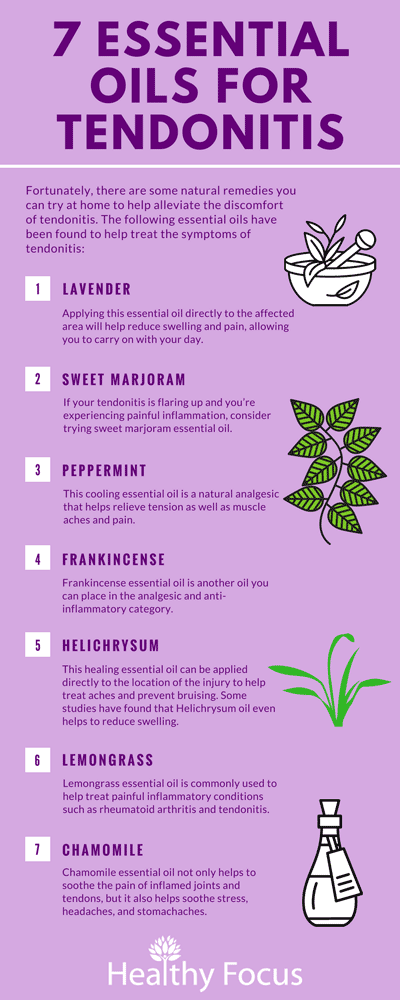Last Updated on November 25, 2019 by Marc Seward
What is Tendonitis?
Tendonitis is when your tendons become inflamed due to repetitive movements, such as exercise, or even sitting in the same position for several hours at a time. Tendons are the thick cords that attach the bone to muscle. Some common activities that cause tendonitis are:
- Tennis
- Golf
- Pitching/throwing
- Shoveling and Raking
- Cleaning
- Scrubbing
- Gardening
Not stretching before exercise or vigorous activity or even having poor posture at work can help increase a person’s risk for developing tendonitis. There are other factors that can increase a person’s risk for developing tendonitis, such as abnormally placed joints or bones, aggravation from other conditions such as gout and rheumatoid arthritis. Taking certain medications, doing too much activity or exercise too soon, or sometimes infections from a dog bite ca also be a factor.
What are the Symptoms of Tendonitis?
If you suspect you are suffering from tendonitis, you will experience pain directly on the location of the tendon or in the surrounding areas. The pain can be on a spectrum, from gradually becoming stronger to being severe.
If you’re suffering from tendonitis of the shoulder, you might not be able to move your shoulder.
Who is at Risk for Tendonitis?
Anyone can develop tendonitis. The older you get, however, the more vulnerable you are to developing tendonitis, as your body is less able to cope with physical stress. Those over the age of 40 are especially at risk for developing tendonitis.
Where does Tendonitis Occur?
You can experience tendonitis on almost any place of your body. Wherever you have tendons connecting muscles to bone, you can develop tendonitis. The most common areas people experience tendonitis are:
- Achilles tendon
- Knee
- Elbow
- Shoulder
- Hip
- Base of thumb
How do I Treat Tendonitis?
If your pain is severe, it is wise to seek medical attention. Some other treatments include taking it easy, icing the area of the injury, and taking anti-inflammatory drugs.
If your pain is severe or persists, physical therapy, corticosteroid injections, or surgery may be necessary.
However, if you are suffering from a minor form of tendonitis, there are some home remedies you can employ to help reduce painful symptoms and help get you on the road to recovery.
Essential Oils for Tendonitis
Fortunately, there are some natural remedies you can try at home to help alleviate the discomfort of tendonitis. The following essential oils have been found to help treat the symptoms of tendonitis:
1) Lavender
Lavender has long been revered for its powerful pain relieving properties. Research has found that lavender essential oil not only has analgesic properties, but anti-inflammatory properties as well. Applying this essential oil directly to the affected area will help reduce swelling and pain, allowing you to carry on with your day.
2) Sweet Marjoram
If your tendonitis is flaring up and you’re experiencing painful inflammation, consider trying sweet marjoram essential oil. This anti-inflammatory oil helps to relieve pain associated with tendonitis, as well as other body aches, such as neck pain.
3) Peppermint
This antispasmodic essential oil helps to relieve such painful conditions as tendonitis and arthritis. This cooling essential oil is a natural analgesic that helps relieve tension as well as muscle aches and pain.
4) Frankincense
Frankincense essential oil is another oil you can place in the analgesic and anti-inflammatory category. Use this oil to soothe painful and inflamed tendons while the oil helps to relieve frazzled nerves and stress.
5) Helichrysum
Helichrysum essential oil is great for those who are experiencing chronic pain due to tendonitis. As with all of the other oils on this list, Helichrysum essential oil is a pain relieving and anti-inflammatory oil. This healing essential oil can be applied directly to the location of the injury to help treat aches and prevent bruising. Some studies have found that Helichrysum oil even helps to reduce swelling.
6) Lemongrass
Lemongrass oil is a great remedy for sore muscles. One study found that lemongrass oil prevents inflammatory responses in the body. Lemongrass essential oil is commonly used to help treat painful inflammatory conditions such as rheumatoid arthritis and tendonitis.
7) Chamomile
Chamomile essential oil not only helps to soothe the pain of inflamed joints and tendons, but it also helps soothe stress, headaches, and stomachaches.
Apply this healing oil directly to the affected area, and anti-inflammatory properties penetrate the skin and help reduce the painful inflammatory response of tendonitis.
How Do I Prevent Tendonitis?
To prevent this painful condition from occurring, there are some steps you can take:
- Take care when exercising. Always be sure to properly stretch and warm up your muscles beforehand and do not do too much too fast. This can cause unnecessary stress on your muscles and tendons. Gradually build up the intensity of exercise.
- Avoid engaging in repetitive movements.
If you start to experience unusual pain, stop what you’re doing and give your tendons and muscles a rest.
Some Considerations
- If you are suffering from tendonitis, consult a physician to establish the severity of the condition and to set up an effective treatment routine.
- Always consult a physician before using essential oils or any other natural remedies to treat a condition.
- When using essential oils, dilute them with a carrier oil such as jojoba oil or coconut oil. Applying essential oils directly to the skin before diluting can cause irritation.
- Before using essential oils as a treatment, do an allergy patch test.
- If you experience an allergic reaction after using essential oils, stop using right away.


Leave a Reply
You must be logged in to post a comment.